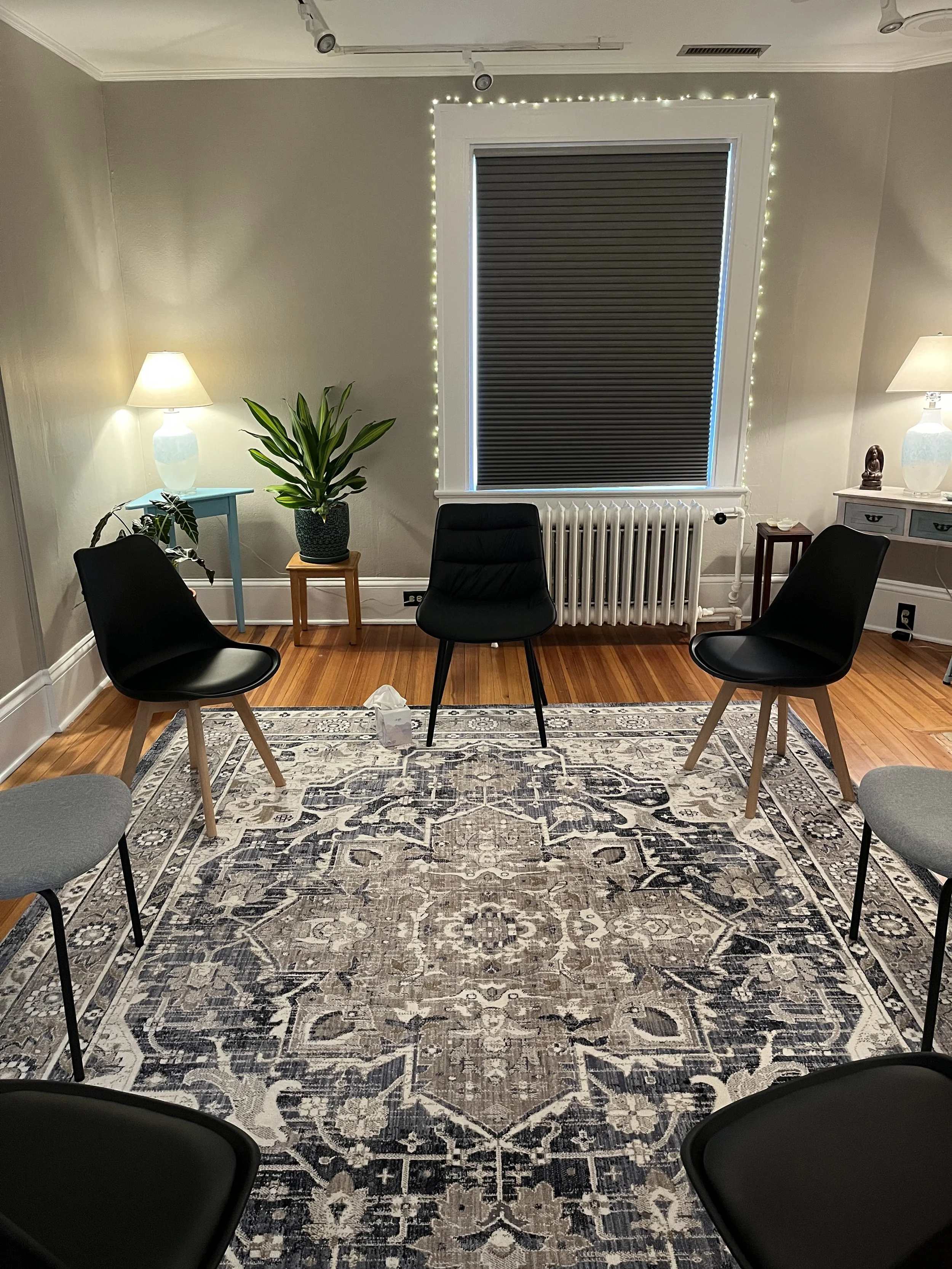groups
I like to think of group therapy—but specifically interpersonal process groups—as practice at being an emotional warrior. This isn’t to say that group teaches us how to wage war with our emotions (we do enough of that already, without trying!), but that it instills us with the courage and resilience that are required to both express and sit with our most difficult emotions. It also provides us with weekly opportunities to connect with other people on a profound (not superficial) level.
Groups are a microcosm of society, and in working with them we can see our patterns, projections, and vulnerabilities in ways that often don’t come up in one-on-one therapy sessions, where the therapist has been trained to respond in certain ways. Group members (unless it’s a group of therapists!) don’t possess that training and therefore tend to trigger one another, usually unintentionally. In learning to respond differently to such triggers—using words instead of behaviors—members experience profound healing.
I’m convinced that the world would be a much happier, healthier place if every one of its citizens were in a process group! All of us stand to benefit greatly from engaging in the honest emotional communication that such groups encourage. Everyone agrees to put feelings into words, not into behaviors, and to say what what they’re feeling as they feel it, to the person they’re feeling it toward. This sounds simple, and it is.
Simple, but not easy.
This type of group work is challenging. But for those who want to know themselves better and show up as more of themselves in relationships—and in every other facet of life—the effort is well worth it. Most of us don’t realize just how much of our emotional experience goes unsaid. Such silence prevents others from knowing us better, which in turn prevents us from knowing ourselves better. And the more we know, the more we love—the more readily we can access the love that we are.
benefits of group
-
connection
People crave true connection now more than ever before, because we’re getting less and less of it. With so many of us in possession of our own private computers and cell phones, we no longer “have to” rely on other people for assistance. But we actually need to rely on other people in order to feel human. Group therapy is an opportunity to experience healthy interdependence with others. We can practice being vulnerable in the admission that we need someone’s support (or guidance, or validation, or even anger), and in turn we can be a source of support for others.
-
aliveness
While there are many skills we can acquire in a process group and then use in our everyday lives and relationships, some benefits of group are only experienced in the group itself. Feeling alive is perhaps the greatest of such benefits. Most of us are so accustomed to not sharing our emotional experience in real time that it feels scary to do so—even when we’re sharing something positive! The heart beats faster, we feel a little shaky, our mouth gets dry, our throat constricts. We experience the thrumming physicality of ourselves, and it’s incredibly enlivening.
-
tolerance
Participating in a process group not only expands our tolerance of people who are different from us (because it allows us to get beyond superficial labels), but it also increases our tolerance for sitting with our own difficult emotions. A typical knee-jerk reaction to an unpleasant feeling is to push it away, or cover it up with another feeling that isn’t as threatening to our sense of self. In learning to tolerate our own emotional experience, we can show up more for others’ emotional experiences, and therefore have more authentic and fulfilling relationships.
current groups
-

Process Group for Contemplative Types (new!)
When: Tuesdays from 2–3:30 p.m. for 12 weeks
Where: Anattasati Magga Sangha
Fee: $50 per session
3 SEATS AVAILABLE; STARTS 1/20/26 -

Friday Afternoon Process Group
Where: 338 Merrimon Avenue
When: Fridays from 4–5:30
Fee: $50 per session
WAITLIST ONLY -

Therapist-Only Process Group
Where: 191 E Chestnut Street
When: Mondays from 4–5:30 p.m.
Fee: $75 per session (co-led with Chris Byrne)
WAITLIST ONLY -

Monday Morning Process Group
Where: 338 Merrimon Avenue
When: Wednesdays from 9–10:30
Fee: $50 per session
1 SEAT AVAILABLE -

6-Week Process Group for Students & Recent Graduates
Where: Zoom
When: time varies; rotating basis
Fee: $45 per session
EMAIL TO INQUIRE -

Monthly Book-Club-Meets-Process Group
Where: Zoom
When: last Wednesday of the month, 6–7:30 p.m.
Fee: $60 per session
2 SEATS AVAILABLE -

Monthly AGPS Meeting for Therapists
Where: 338 Merrimon Avenue
When: 2nd Tuesday of the month, 5–6:15 p.m.
Fee: Free (not a process group)
MORE INFO HERE
